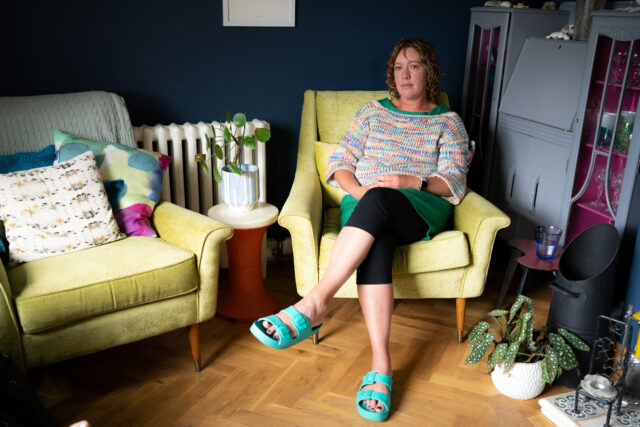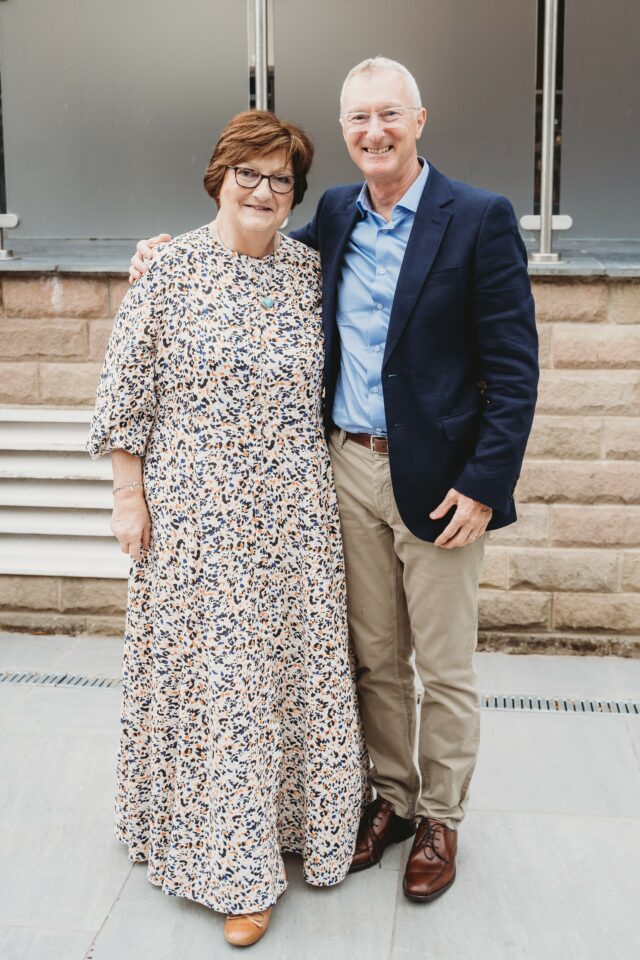Voices from the UK's pulmonary hypertension community
London-based Shirley is 64 and has lung disease as well as pulmonary hypertension.
“I remember becoming very concerned about germs just prior to the pandemic and I bought some masks for my grandson’s birthday party to keep me safe from catching a cold. Thank goodness I did, because they were impossible to get after that!
I started to become more breathless before the pandemic took hold and stopped going to the gym and to choir, so I suppose my ‘pandemic plan’ actually started before the pandemic.
I was living with my daughter at the time the first lockdown was announced but she moved out straight away to stay with friends because she has a social life and wanted to protect me.
It was a really shocking and upsetting time. Even though I felt sort of mentally prepared, it’s hard to be prepared for something when you don’t know how long it will last.
I remember feeling very numb and thinking ‘is this really happening’?
It was unreal and unbelievable. Being told I was clinically extremely vulnerable to covid was nailing it home to me that I’m really ill because I was in a very small category of people.
I suddenly thought ‘of all the type of people this pandemic is going to attack, it had to be me with the respiratory conditions’.
It made me feel really down because it made me think that I must be really ill. It made me think ‘I’m so vulnerable and so ill that even the government has recognised that and told me that I am’.
The last couple of years have made me think about my mortality more. It was all these emotions all in one.
In order to try and keep my life as normal as possible, I’ve always found ways around doing things I’ve always done.
I retired from my teaching job on ill-health grounds and before the pandemic my kids used to joke that I was out the house more than when I was working. And it was true, I was out of the house every single day.
I was always going somewhere. There were two choirs that I went to, the gym, Tai Chi, and meeting friends.
Suddenly not going out of the house for two years completely changed my life and it was a hugely isolating and lonely time.
It has had a massive impact on my mobility. My walking is so much worse, I find it very hard to walk, and it’s had that impact because I’m not exercising or going out.
My garden became my sanctuary.
I was nervous even to take the bins out around the front, but in the garden, I could sit freely.
It was a place I spent a lot of time on my own, looking at the seasons change, looking at the trees, and listening to the birds. I had time to contemplate my isolation in my garden in a safe way.
I went through a time when I just cried, especially while watching the TV. But I have two young grandchildren and knowing they were there, got me through. It motivated and encouraged me through the depression.
I kept a diary for the first year of the pandemic, because I wanted to remember going through all of that. There was such a vast array of emotions that I just wanted to write down how I felt. I find it quite difficult to read now.
I wrote about how it was completely silent, despite being in the middle of London, and for a while I couldn’t even hear birds. I remember finding that really strange.
At first, I was happy with the video calls from the hospital but now I find them a hindrance because I feel like I’m not being checked thoroughly, and that things could be missed.
I have felt able to contact my specialist PH team, and I have felt supported by them, but I feel moving forward that a combination of face-to-face and telephone appointments would be best.
Everything with my GP has been on the phone too and considering the extent of my health conditions, I don’t feel like it’s thorough enough. Before, the GP was a bit of a lifeline for me, but I feel I haven’t got that lifeline anymore.
I’m very worried about having to go into A&E if I’m unwell.
I feel really left behind, like I have been deprived of proper healthcare for a couple of years.
It was only when I finally decided to have a vaccine that I started to have hope that things may get better.
It took me two years to make the decision to have one, as I didn’t trust there was enough information about them. Everyone told me I should have one, but I felt we didn’t know enough about them.
My family was divided; the older members took it readily, but the younger members, including my daughters, still haven’t had it.
Eventually I realised that my life would never get back to normal if I didn’t have a vaccine, as it would always be too risky for me to go out.
I’m now able to make appointments and do a bit of shopping, and I feel like I’m part of the community again.
I still haven’t gone back to choir though because I’m embarrassed about how much worse my mobility is.
It’s been a really difficult time for everyone.
Not being able to hug my family was especially huge and even now, we hesitate. Because my daughter socialises so much, she’s worried she’s going to pass something on to me, so we have to think about it before we do it. It can’t be impulsive anymore, as one of us needs to be wearing a mask.
I do feel like eventually, I will get back to 70% ‘normality’ but I do think some things have completely changed.
I feel like my normality will take a bit more time. But I do feel like there is a world out there for me.”
~Shirley told her story to the PHA UK in the summer of 2022~

KatieLife is short, and that is exactly what the last couple of years have shown us
SarahThe lack of control is probably what I struggled with most
MarkI wasn’t willing to go back to work and put her in danger

JulieEvery corner I turned during the pandemic was scary, but my specialist centre gave me hope